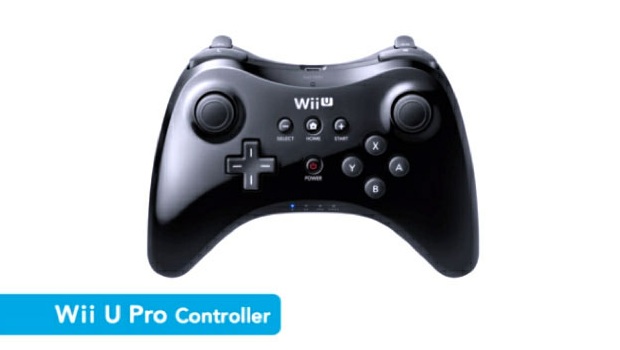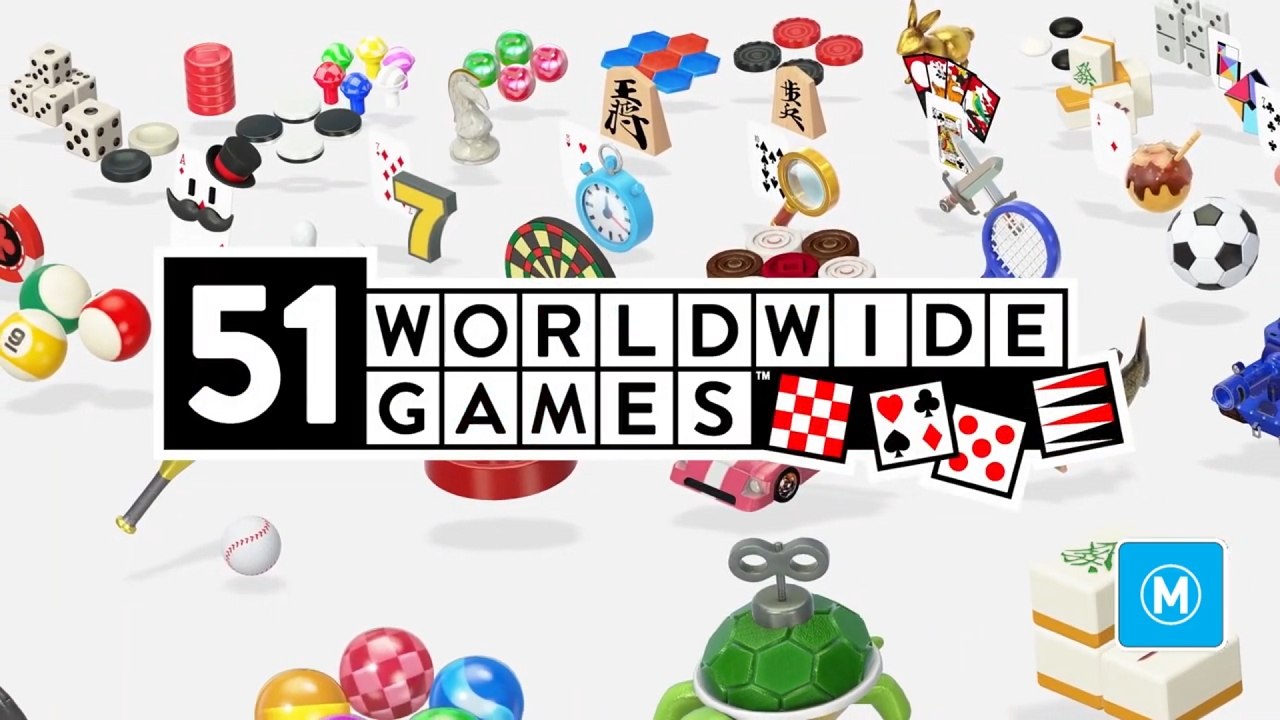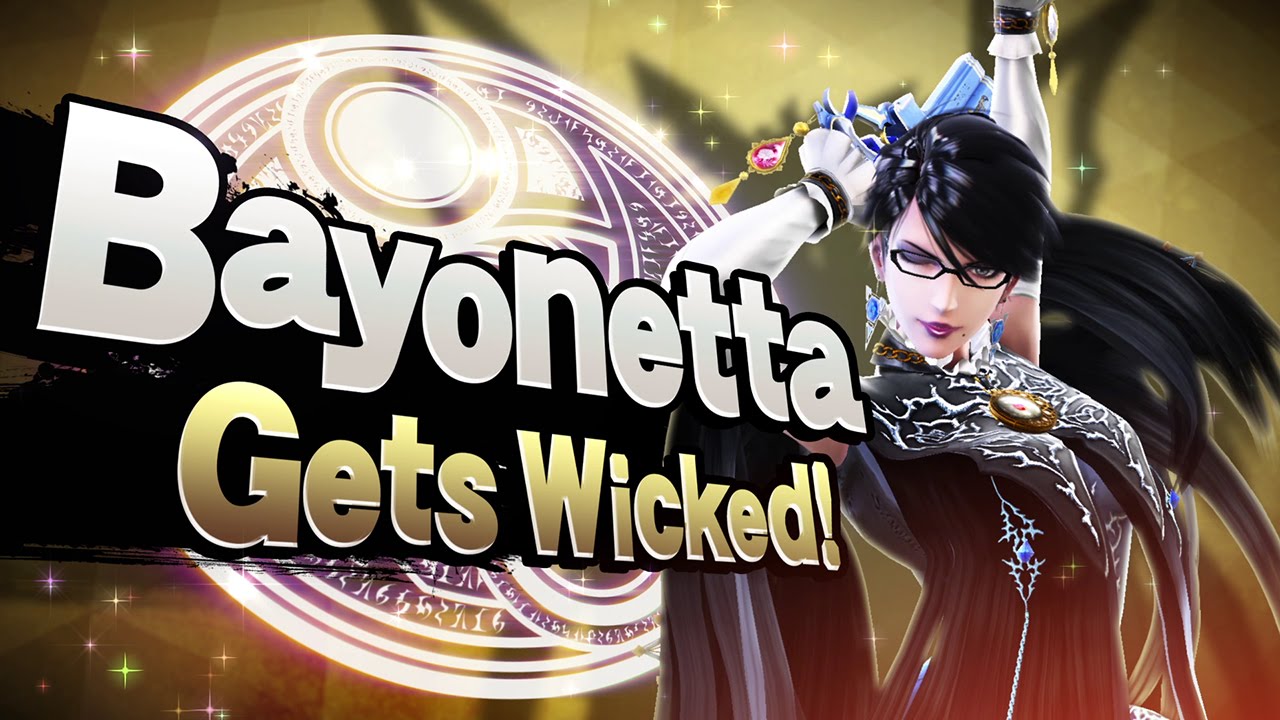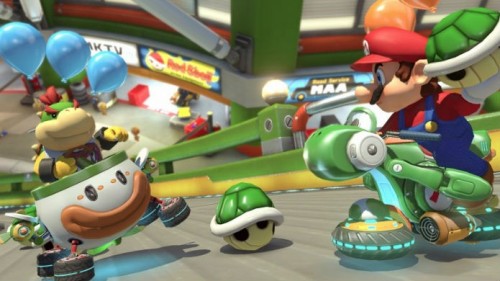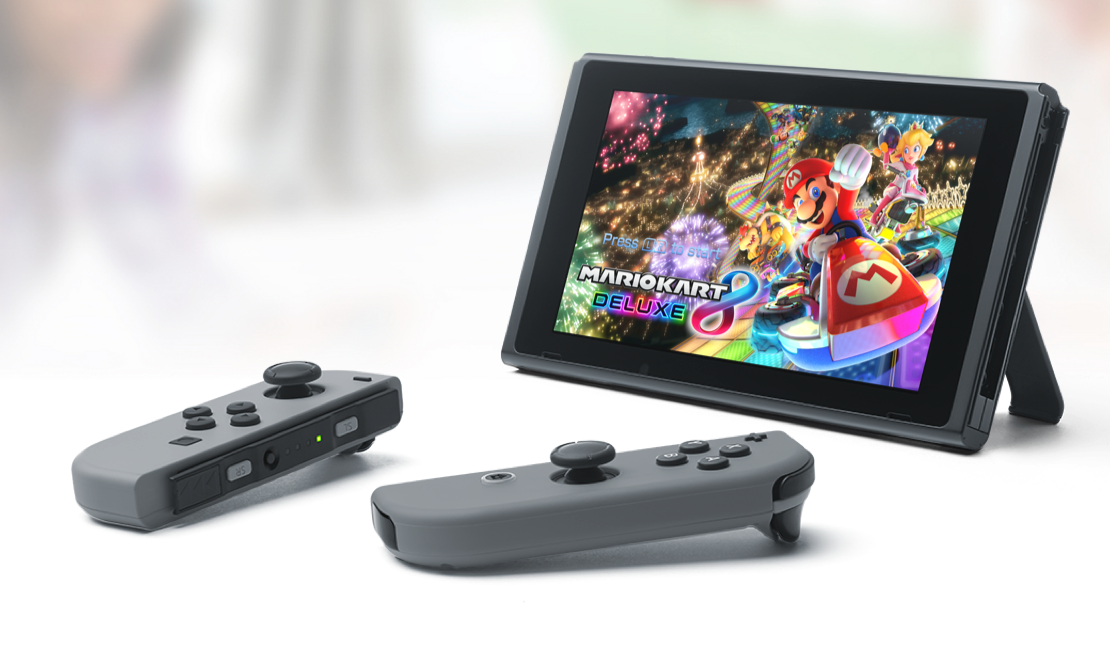
When I was first introduced to Miis by the Nintendo Wii, I didn’t know how to feel about the strange little avatars I was forced to create. As time went on, and each subsequent generation of Nintendo hardware included Miis, I gradually began to grow attached to the limbless little terrors that infested my consoles. I took my 3DS overseas, both to play games on the go and to collect Miis from people in far-away countries and use them in the little games included in Mii Plaza. When Tomodachi Life was released, I realised the sort of experiences that could be created by leveraging my collection of Miis. That silly and fun hotel left me wanting more, a grand adventure that I could fill with facsimiles of my friends and idols. Where I could fight monsters, save the world and play off my friend’s characters. In theory, Miitopia promised to be just that, but in practice, it falls short of being the grand adventure I’d hoped for.
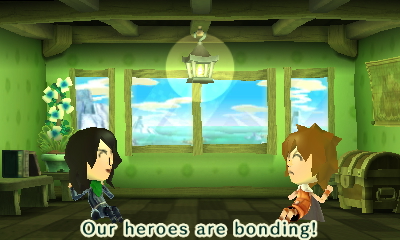
In reality, Tomodachi Life and its absurdist humour was what made me begin to love Mii characters and what they represented. Silly writing, melodramatic skits and general randomness all tied together to create a unique identity for Miis that was a pleasure to experience. It’s obvious from the beginning that Nintendo tried to recreate this feeling with Miitopia, but being locked into the singular fantasy setting has hampered the absurdity. Skits occur frequently throughout the game, as they did in Tomodachi Life, but the variety just isn’t there and they quickly begin to repeat. This is especially true of the relationship related skits, which begin to repeat within the first few hours of the game. You can’t exactly dash off to a faraway place or utilise technology for comedic effect when you’re in what is for all intents and purposes, a medieval fantasy setting.
The issue with the humour doesn’t just end with the skits themselves and their repetitiousness, but also with the writing itself. The game frequently utilises anti-humour, delivering jokes that have anticlimactic or nonsensical punchlines. These are no doubt meant to make you laugh at the absurdity of your Mii and its failed attempts to be humorous, but they just fall flat and feel awkward to read and see. The game also makes use of many predictable and well-trodden tropes, such as the Princess who is in love with her childhood friend but is betrothed to a haughty Prince. I dare say you already know how that plot point resolves itself, and that’s par for the course throughout the game’s story. It truly feels as though the story and writing are hemmed in by trying to stay too close to the fantasy setting and its myriad tropes, instead of truly embracing the absurdity that has become so characteristic of Miis.
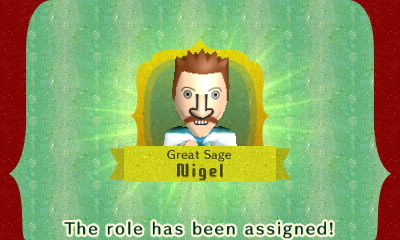
While the writing, humour and story fall flat, the characters themselves and the classes you can assign to them only continue to grow in absurdity as you continue through the game. The ability to assign a Mii of your choice to every main character throughout the game allows you to completely customise your adventure. In my own adventure I was graced by such story characters as The Great Sage Nigel Thornberry and the King of Green Freddie Mercury, as well as companions Lust (Full Metal Alchemist) the Imp and Ichigo (Bleach) the Warrior. I had immense amounts of fun just searching the Internet for QR codes of Miis that resembled characters from my favourite anime, bands and tv shows and including them in my story. I was given the ability to create a dream-team of characters that I already had an attachment to and because of that the adventure in its entirety was more engaging.
This choice also flowed into the character classes themselves, where I could decide on every character class that was included in my team. Miitopia begins with only six-character classes, including the standard Warrior-Cleric-Mage-Thief combo, but gradually expands as you progress through the story. This includes such classes as the Chef, who uses cooking abilities to heal allies and damage opponents, or the cat, who utilises its claws to damage opponents and its loveable nature to buff allies. There are no right or wrong selections as far as class goes, with a suite of always-available team-wide healing abilities I’ll go into later, and the choice purely comes down to what you want to see. Each character has their own unique abilities thanks to their class, but they also have a different set of strengths and weaknesses granted by the personalities you assign to them. None of the weaknesses provide a negative effect in battle, but they do give each character some uniqueness to bring to each battle.
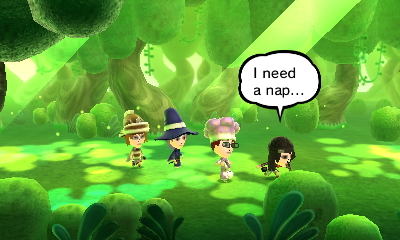
These personalities come to the fore during battle, where your companions are completely outside of your control. A stubborn character will sometimes refuse your healing ability, generally because they’re not that damaged, and a cautious character might take a turn out to prepare before launching a stronger attack next turn. None of these personality-based skills are revealed to you when selecting a character’s personality and are only revealed as they occur in battle. Battles themselves seem to be turn-based, however, you’re never able to see whose turn it will be next. This adds an element of surprise to combat which can sometimes be a little frustrating. You can also pause combat at any time to use your ‘sprinkles’. Sprinkles come in differing forms, namely HP, MP and Life sprinkles. These sprinkles are global pools of healing abilities that can be utilised at any point, allowing you to pick your team up if you’re worried that your comrades won’t heal themselves before the next flurry of attacks. Throughout my time with Miitopia I never had a battle where the AI companions left themselves in a bad situation, which allowed me to instead micro-manage health and watch the spectacle of it all without worry. One worry with this is that it does mean the combat itself is fairly easy, which may put some off.
While Miis have evolved over time, the one noticeable over-arching design concept is that they’re simplistic. This flows through to the general design of Miitopia as well. Textures are simplistic and colourful, staying away from anything that is too complicated or busy. Music stays away from the complex orchestral tunes we’ve come to find in most games, instead sticking with a larger variety of simpler tunes. The exploration and progression is also extremely simple, with your Miis automatically progressing from left to right through levels with your input only being required once an event occurs or a branching path appears. These are all obvious choices made by the development team to keep every part of the game with a central theme of simplicity and they flow into what I consider to be the best feature of the game. It can be completely controlled and played with just a stylus.
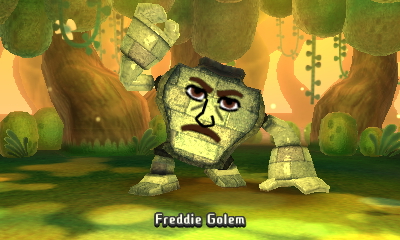
While I generally played the game using the buttons on my 3DS, I’m happy to see that Nintendo have made Miitopia the absolutely personification of accessibility. This may not be a big feature for many people, but allowing people to play the game with only a single input device opens the game up to so many people who may not be able to play games with more complex input schemes. No matter your familiarity with games, your ability to master complex control schemes or even a physical disability, as long as you have a single digit you can play Miitopia without any compromise whatsoever. There is absolutely no doubt in my mind that I would love to see more games designed to be this open and friendly to everyone who wants to play them.
I went into Miitopia expecting an absurdist adventure filled with whacky humour and zany writing, and while it didn’t quite deliver on that, I found something else to enjoy in the experience. The games ultra-simplistic and accessible nature means that anyone can pick up Miitopia and quickly be on the way to an ever-customisable character-based adventure. While I had hoped for more, Miitopia is a game I can recommend to anyone that wants an easy-going RPG experience.
- Game is completely controllable via a single input
- Can create dream-teams using Miis
- Game is extremely linear
- Humour largely falls flat
- Story is filled with predictable tropes
- Lacks the absurdity of other Mii-based games

